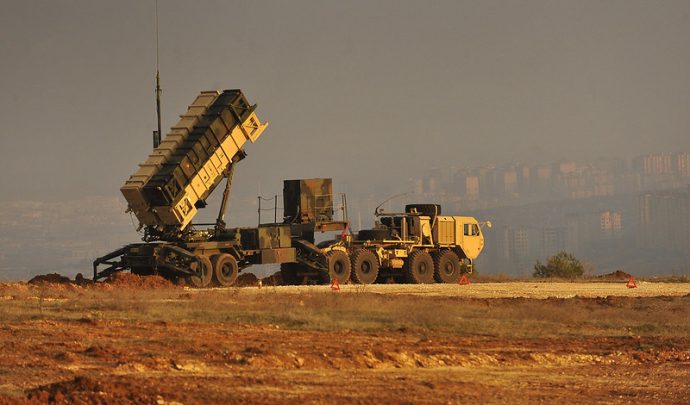James Phillips answers the chorus of people this past week — “no, we’re not selling out the Syrian Kurds”:
Caught up in a conflict between long-standing NATO ally Turkey and a recently engaged Kurdish tactical partner in Syria, the Trump administration has accommodated the legitimate security interests of Turkey by staging a partial pullback of U.S. special operations forces in northeastern Syria.
It did so to get out of the way of a Turkish intervention launched Wednesday.
Although critics of the Trump administration have rushed to denounce the decision as a “sellout” of the Syrian Kurds, that’s not true. Washington received no payoff from Ankara for stepping aside, and is not “abandoning the Kurds,” as many critics contend.
Washington’s ad hoc partnership with Syrian Kurds never included a commitment to help them fight Turkey, only to fight the Islamic State, the terrorist army also known as ISIS.
The United States still supports Syrian Kurds against ISIS, just as it supports Iraqi Kurds and the Iraqi government against ISIS. But Washington has remained neutral with regard to Turkey’s complaints about the threats Syrian Kurds pose to Turkey.
To be more specific, the Pentagon continues to support the Kurdish-led Syrian Democratic Forces against ISIS. It has declined, however, to work with the largest Kurdish armed faction within the those forces, the People’s Protection Units (YPG in its Kurdish acronym) to resist the Turkish intervention.
In geopolitical terms, that’s a logical and necessary decision.
Trump Warns Turkey’s President
Turkey is a long-term strategic ally that exercises major influence in the Middle East. The YPG is an offshoot of the Kurdistan Workers’ Party (PKK in its Kurdish acronym), a U.S.-designated terrorist group that has waged war against Turkey off and on since 1984 in a bloody separatist insurrection that has claimed more than 40,000 lives.
Although the Obama and Trump administrations accepted the YPG as a newfound tactical ally in the war against ISIS, neither administration embraced the YPG/PKK agenda regarding Turkey.
Read more: The Daily Signal
Image credit: U.S. Department of Defense.

